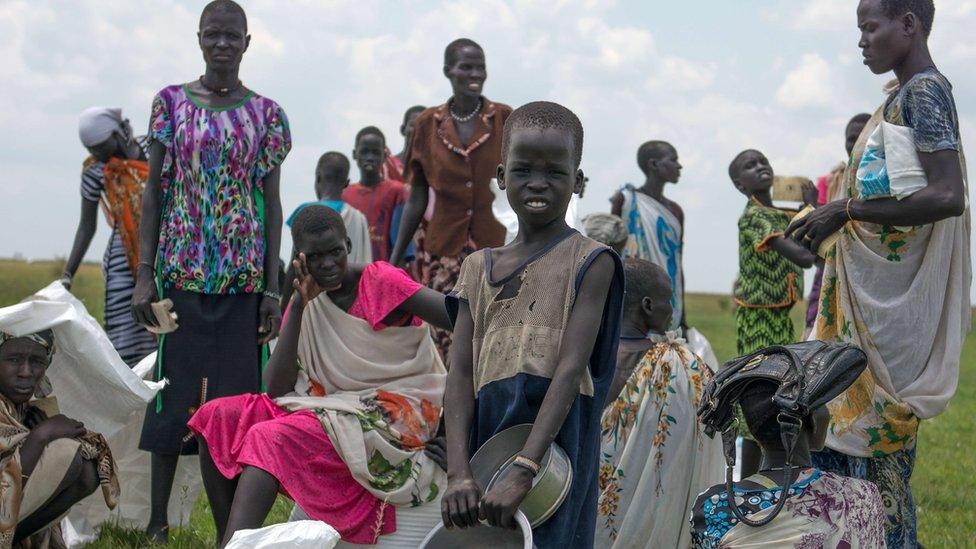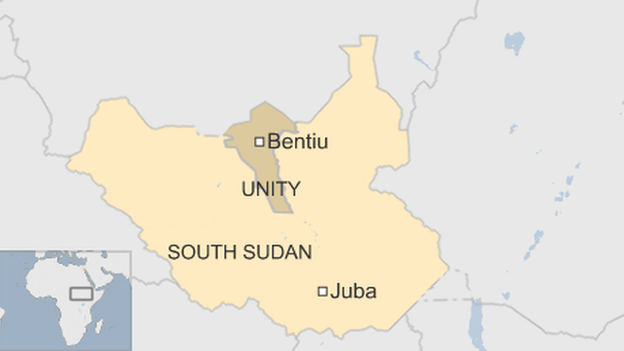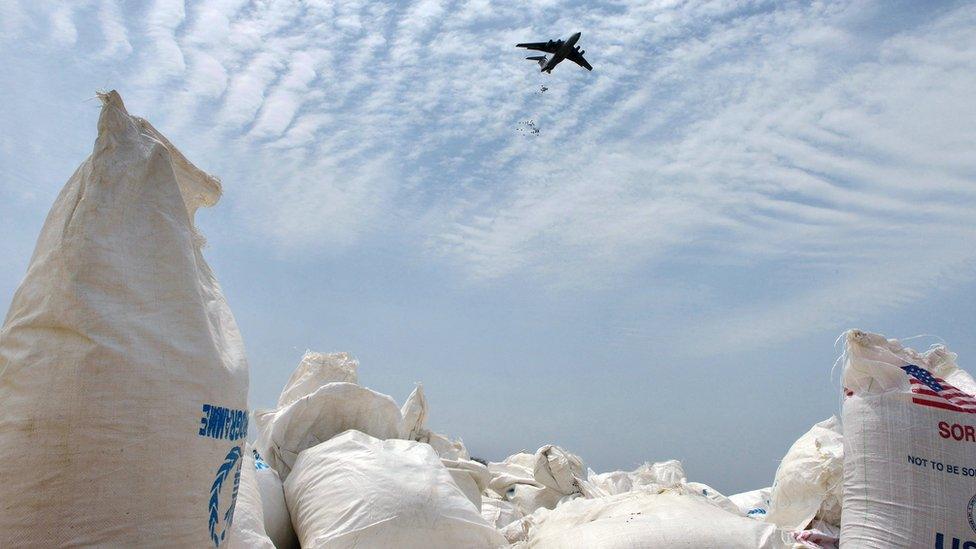South Sudan war: 30,000 people face starvation, UN warns
- Published

South Sudan's civil war has left a third of its population in crisis
At least 30,000 people are facing starvation in South Sudan, the UN has said.
Three UN agencies warned that a famine could develop in southern Unity State, where fighting has prevented deliveries of humanitarian aid.
Two years of civil war have left nearly 4m people - particularly young children - facing severe hunger, the UN said.
Both the government and rebel forces have accused each other of breaching a peace agreement signed in August.
The conflict has left a third of the country's population is in crisis, up 80% since last year, the UN's Food and Agriculture Organization (FAO), children's agency Unicef and the World Food Programme (WFP) said in a joint statement.
"People are on the edge of a catastrophe that can be prevented," said WFP chief Joyce Luma.
'Catastrophic' situation
Fighting has disrupted harvests, food and fuel prices have risen and some displaced families are being forced to survive on a single daily meal of fish and water lilies.
An official famine has not yet been declared, but almost a million people are described as living in a "catastrophic" situation, the highest level of food emergency under the Integrated Food Security Phase Classification (IPC), which classifies hunger on a scale of one to five.

Under the IPC, a famine is declared when 20% of the population are deemed to be in a catastrophic situation.
Families have been "extraordinary" in trying to sustain their children but have now exhausted all their coping mechanisms, said Jonathan Veitch, head of Unicef in South Sudan.
"Agencies can support, but only if we have unrestricted access. If we do not, many children may die," Mr Veitch said.
The civil war began in December 2013, when President Salva Kiir accused his former deputy Riek Machar of planning a coup, setting off a cycle of retaliatory killings that has split the country along ethnic lines.
Both sides are accused of perpetrating ethnic massacres, recruiting and killing children and carrying out widespread rape, torture and forced displacement of populations to force out their opponents.

People in inaccessible areas have to rely on food drops to survive